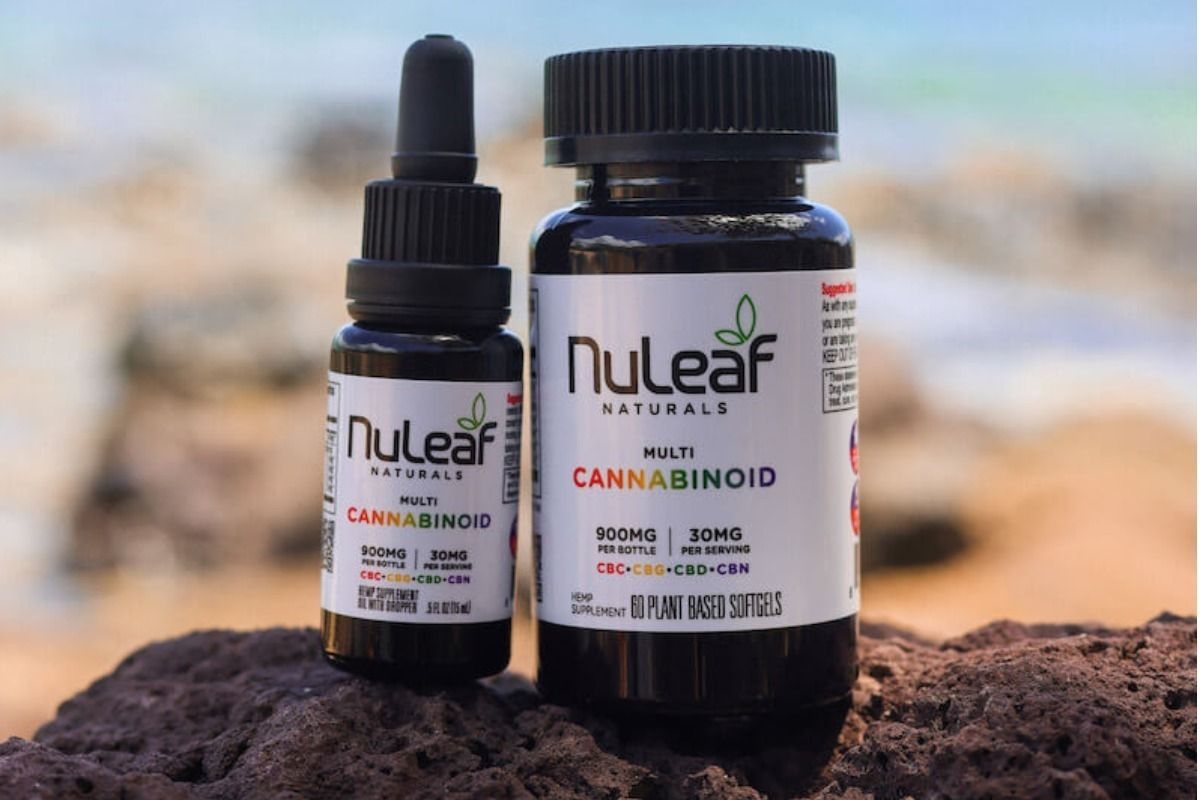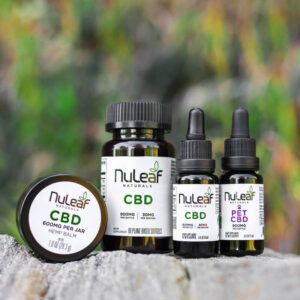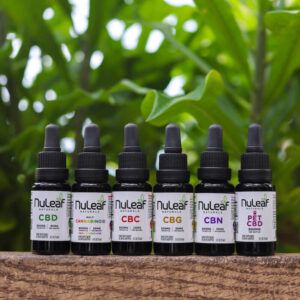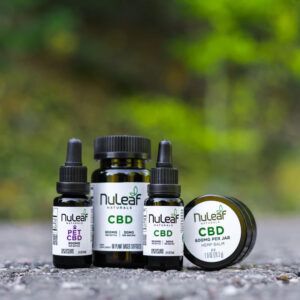10 CBD Oil Ingredients to Watch Out For

In a perfect world cannabidiol (CBD) oil would only contain two ingredients: hemp extract and a carrier oil. Take a peek at your average CBD product label, however, and more often than not you’ll find it contains a litany of hard-to-pronounce additives, flavoring agents, and more. And sometimes, as the CBD industry remains unregulated, the label may not even accurately reflect the product’s ingredients. In fact, studies show CBD products may not even contain the amount of CBD advertised on the label, or may contain no CBD at all!
So what’s a smart shopper to do? If you’re hunting for the most effective CBD oil, it’s important to make sure you’re getting the purest product possible. Here’s a list of some of the most common additives and fillers in CBD to watch out for — and how to shop for pure CBD oil.
 CBD Oil Ingredients: What Exactly Is CBD Oil?
CBD Oil Ingredients: What Exactly Is CBD Oil?
CBD is a type of cannabinoid, a fat-based compound produced by cannabis plants that interacts with our body’s endocannabinoid system, which regulates balance for a number of functions. While THC and CBD are two of the most well-known cannabinoids, we currently know there are over 120 different types out there.
And while more research is ultimately needed, what we do know so far is each cannabinoid has its own characteristics. CBD, for instance, is unique for a number of reasons. Research shows it’s a powerful anti-inflammatory agent that has a number of promising applications including the ability to treat and manage epilepsy, anxiety, pain, and other chronic conditions.
CBD can be extracted from hemp plants using a number of different methods. We prefer eco-friendly CO2 extraction methods, as these result in a purer final product with minimal risk of contaminants. The end result of the extraction is an oil that’s rich in CBD.
CBD carrier oils can vary widely from brand to brand, from sunflower oil to medium chain triglyceride MCT oil (usually derived from coconut oil or palm kernel oil). We consider hemp seed oil to be the golden standard, as it’s hypoallergenic and may encourage the “entourage effect” — which is to say, it may make the cannabinoids in CBD products more effective than they would otherwise be on their own.
The type of CBD you consume also has a significant impact on how effective it may be for you. There are three main types of CBD on the market today: CBD isolates, broad spectrum CBD, and full spectrum CBD.
Isolate products will contain chemically isolated CBD and nothing else. Broad spectrum CBD, however, will contain additional phytonutrients found in cannabis plants such as terpenes and flavonoids. Full spectrum CBD products contain all of these phytonutrients as well as a small amount of THC.
Researchers postulate that the combination of all phytonutrients yields the greatest therapeutic effect thanks to the phenomenon mentioned above — the entourage effect. As such, full spectrum products are viewed as the most effective products, so you’ll want to make sure the CBD oil you purchase is a full spectrum blend.
10 Common CBD Ingredients to Avoid: What Ingredients Should Not Be in CBD?
Let’s dive into a closer look at common ingredients to avoid in CBD products.
CBD Emulsifiers
Carrageenan
Carrageenan is a type of emulsifier, a compound used to stabilize processed foods. Although it’s typically found in dairy products, it can also be found in CBD products now too. Carrageenan may be linked to inflammation and was removed from the National Organics Standards Board approved organic foods list in 2016 according to the Daily Burn. According to MedicineNet, side effects include bloating and irritable bowel syndrome (which can involve diarrhea, bloating, belly pain, or cramps).
Lecithin
Lecithin is another CBD emulsifier commonly found in CBD oils. As it can come from soy or eggs, this ingredient can be a cause for concern for those with food allergies.
Consumers also report experiencing negative side effects from lecithin consumption. Medical News Today reports the following potential side effects:
- Diarrhea
- Nausea
- Stomach pain
- Increased saliva in the mouth
- Feeling of fullness
Those with allergies shopping for CBD may want to opt for lecithin-free products to avoid any potential health concerns or call the manufacturer to confirm the lecithin source.
Gum Arabic
Another type of emulsifier you might see on product labels is gum arabic, a
complex type of sugar that comes from certain trees. This type of plant fiber is “indigestible to both humans and animals.” As such, it may cause GI symptoms such as flatulence, and individuals with digestive problems such as irritable bowel syndrome (IBS) may want to avoid it.
Preservatives
Potassium Sorbate
Potassium sorbate is a type of preservative used to extend the shelf life of a product. It’s typically found in food products as well as some cosmetic applications. According to Healthline, “Despite purity requirements set out for manufacturers, it’s still possible that potassium sorbate as a food additive can be contaminated.” Contaminants may include toxic heavy metals such as lead, arsenic, or mercury.
Manufactured Citric Acid
A type of acid derived from citrus, citric acid is a common preservative in many household cleaning products. While citric acid is denoted as a GRAS (generally recognized as safe) substance, some consumers still report negative side effects.
While citric acid is naturally found in fruits and vegetables, according to Toxicology Reports “it is not the naturally occurring citric acid, but the manufactured citric acid (MCA) that is used extensively as a food and beverage additive. Approximately 99% of the world’s production of MCA is carried out using the fungus Aspergillus niger since 1919.” This fungus is actually a known allergen.
While there have been no scientific studies performed on the long-term safety of MCA ingested in large amounts, the report includes cases of people who experienced the following symptoms after ingesting food or nutritional products containing MCA:
- Respiratory symptoms
- Joint pain
- IBS
- Muscular pain
- Enervation
Sodium Benzoate
A popular flavor enhancer and preservative commonly found in sodas, sodium benzoate is now finding its way into CBD oils.
According to Healthline, sodium benzoate “may increase your risk of inflammation, oxidative stress, obesity, ADHD, and allergies.” In a study published in The Lancet, this compound was found to increase the risk of hyperactivity in children.
When combined with Vitamin C, sodium benzoate can convert to benzene, a chemical associated with cancer development. Indeed, the FDA explicitly says, “Benzene is a carcinogen that can cause cancer in humans.” While sodium benzoate is technically categorized as GRAS (again, that stands for “generally recognized as safe”), a five-year study published in the Journal of Agricultural Food Chemistry found benzene concentrations in common foods and drinks with over 20 times the maximum contaminant level set by the Environmental Protection Agency.
Artificial Colors
“Artificial colors” is an umbrella term used to refer to a group of different types of additives that influence the color of a final product. Use of these compounds has been deemed controversial due to reports that have linked them to hyperactivity in children.
A paper published in 2013 in the International Journal of Occupational and Environmental Health by UCLA scientists found that all nine currently U.S.-approved food dyes “raise health concerns of varying degrees.” These include:
- Red 3, which causes cancer in animals
- Red 40, Yellow 5, and Yellow 6, which have been found to be contaminated with benzidine or other carcinogens
- Blue 1, which along with Red 40, Yellow 5, and Yellow 6 cause hypersensitivity reactions
Common Food Allergens
Some CBD products may contain common food allergens. Watch out for the carrier oils MCT oil and coconut oil, as coconut is a common food allergen.
Chemicals and Toxins
Hemp is what’s known as a “bioaccumulator,” which means it absorbs chemicals and other contaminants, such as pesticides and heavy metals, present in the soil at a faster rate than it expels them. For this reason, it’s best to stick to CBD products made from organic hemp. Organic CBD oil guarantees healthier soil before hemp seeds are even sown, thereby reducing the risk of contaminants entering the plant and, ultimately, the final CBD product.
Do your due diligence to make sure you’re purchasing from reputable manufacturers to avoid exposure to residual heavy metals or harsh chemicals that can be found in non-organic or poorly extracted CBD products.
 Animal Byproducts
Animal Byproducts
If you follow a vegan or plant-based diet or wish to avoid certain animal-based foods for religious or personal reasons, watch out for these common animal byproducts found in CBD supplements:
- Capsules made with gelatin, which is an animal byproduct and usually derived from bovine sources
- Collagen
- Hyaluronic acid made from rooster combs (there are vegan sources as well)
- Vitamin D3 from animal sources such as fish oil or boiled sheep’s wool
- Chondroitin which comes from the connective tissues of sharks or cows
- Glycerin which can come from animal sources such as tallow
- Digestive enzymes, which may be derived from animals such as lambs and calves
- DHA omega-3, which come from fish and seafood (opt for vegan-friendly ALA instead)
Look for Certificates of Analysis
Unfortunately in today’s market it’s not enough to read the ingredients list on a label or online product description. Reputable CBD manufacturers will include a Certificate of Analysis with their products, and examining this document is the best way to make sure you’re getting the exact amount of CBD or other cannabinoids listed on the product label. It also shows whether or not the product is free of heavy metals, mold, chemical solvents, and other unwanted contaminants.
Unflavored Pure CBD Oil: The NuLeaf Naturals Difference
Looking for the best organic CBD oil without additives? We take pride in the fact that our full spectrum CBD oil is as pure as it comes, containing just two ingredients — full spectrum hemp extract (CBD) and organic hemp seed oil — and our full spectrum CBD oil capsules are 100% plant-based CBD softgels.
Since our specially selected violet glass bottles are effective for preserving our products, you’ll feel secure knowing there are no preservatives as well. And all our products are certified by third-party labs as free of harmful toxins or unnecessary additives — as demonstrated in our COAs for every batch.
Shop now to check out our pure, safe, and effective cannabinoid products today.
Do you have questions about our products?
Our Expert Team is here to help via phone, email, or online chat:
Email: [email protected]
Online chat: nuleafnaturals.com
Don’t hesitate to get in touch with us between 9am and 5pm MT, Monday – Friday.